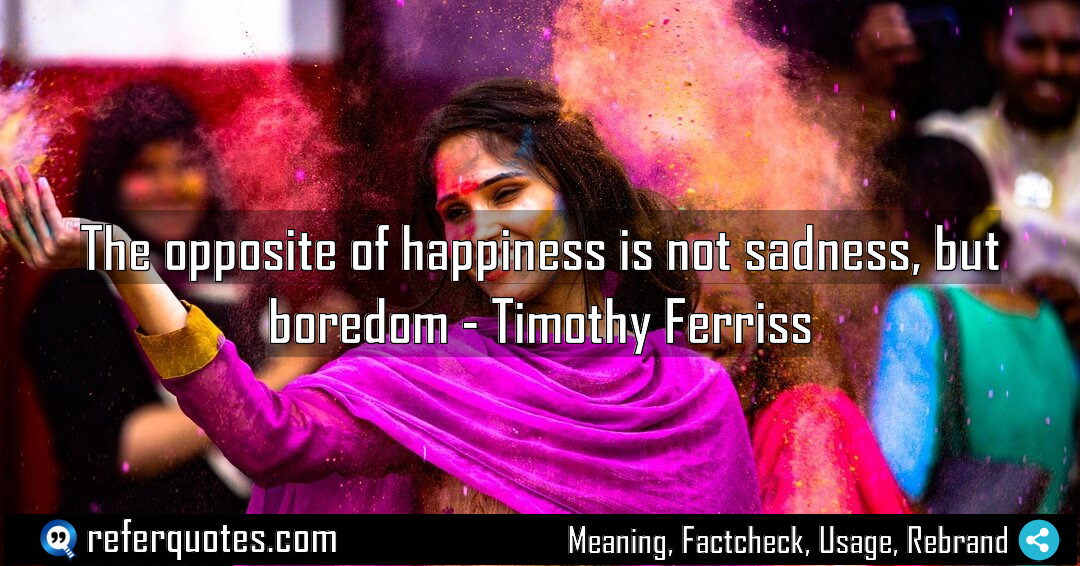You know, the opposite of happiness isn’t sadness, it’s actually boredom. It’s a game-changing perspective that forces you to rethink your entire approach to life and work.
Share Image Quote:Table of Contents
Meaning
The core idea is that a life devoid of engagement, challenge, and novelty—a boring life—is the true enemy of fulfillment, not temporary emotional downturns like sadness.
Explanation
Let me break this down because it’s powerful. We’re conditioned to think of emotions on a simple spectrum: happy on one end, sad on the other. But that’s a flawed model. Sadness is a feeling, a deep one, and it’s often tied to something that mattered. It’s a part of a rich, full life. Boredom, though? Boredom is the absence of feeling, the absence of engagement. It’s a state of quiet desperation where nothing moves you. It’s the soul’s indicator that you’re not growing, not challenged, not alive. I’ve seen it time and again—people can endure incredible hardship if they’re passionate, but a comfortable, monotonous routine will kill their spirit faster than any setback.
Quote Summary
| Context | Attributes |
|---|---|
| Original Language | English (3668) |
| Category | Emotion (177) |
| Topics | boredom (2), happiness (48) |
| Literary Style | philosophical (434) |
| Emotion / Mood | provocative (175) |
| Overall Quote Score | 81 (258) |
Origin & Factcheck
This quote comes straight from Timothy Ferriss’s 2007 bestseller, “The 4-Hour Workweek,” which really kicked off the “lifestyle design” movement in the United States. It’s often misattributed to other self-help gurus or even existential philosophers, but the phrasing and the core concept in this context are unequivocally his.
Attribution Summary
| Context | Attributes |
|---|---|
| Author | Timothy Ferriss (145) |
| Source Type | Book (4032) |
| Source/Book Name | The 4-Hour Workweek: Escape 9-5, Live Anywhere, and Join the New Rich (49) |
| Origin Timeperiod | 21st Century (1892) |
| Original Language | English (3668) |
| Authenticity | Verified (4032) |
Author Bio
Timothy Ferriss writes and builds systems that help people work less and achieve more. He broke out with The 4-Hour Workweek and followed with books on body optimization, accelerated learning, and distilled tactics from top performers. He hosts The Tim Ferriss Show, one of the most-downloaded podcasts globally, and has invested in notable technology startups. The Timothy Ferriss book list continues to influence entrepreneurs, creators, and professionals seeking leverage. He studied East Asian Studies at Princeton, founded and sold a supplement company, and actively supports psychedelic science research.
| Official Website | Facebook | X| Instagram | YouTube
Where is this quotation located?
| Quotation | The opposite of happiness is not sadness, but boredom |
| Book Details | Publication Year/Date: 2007; ISBN: 9780307353139; Last Edition: Expanded and Updated Edition (2009); Number of Pages: 416. |
| Where is it? | Chapter: Definition; Approximate page from 2009 edition: 61/416 |
